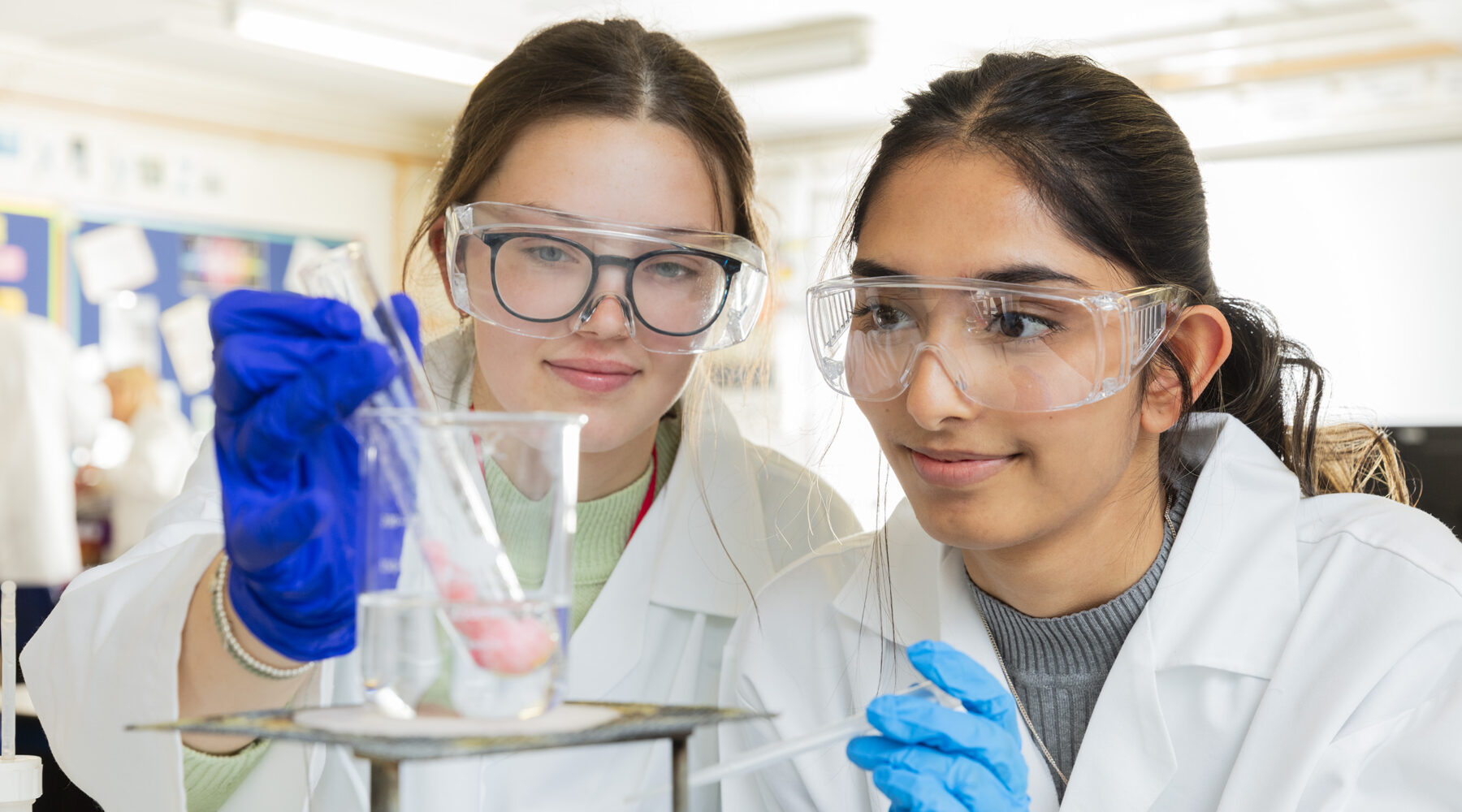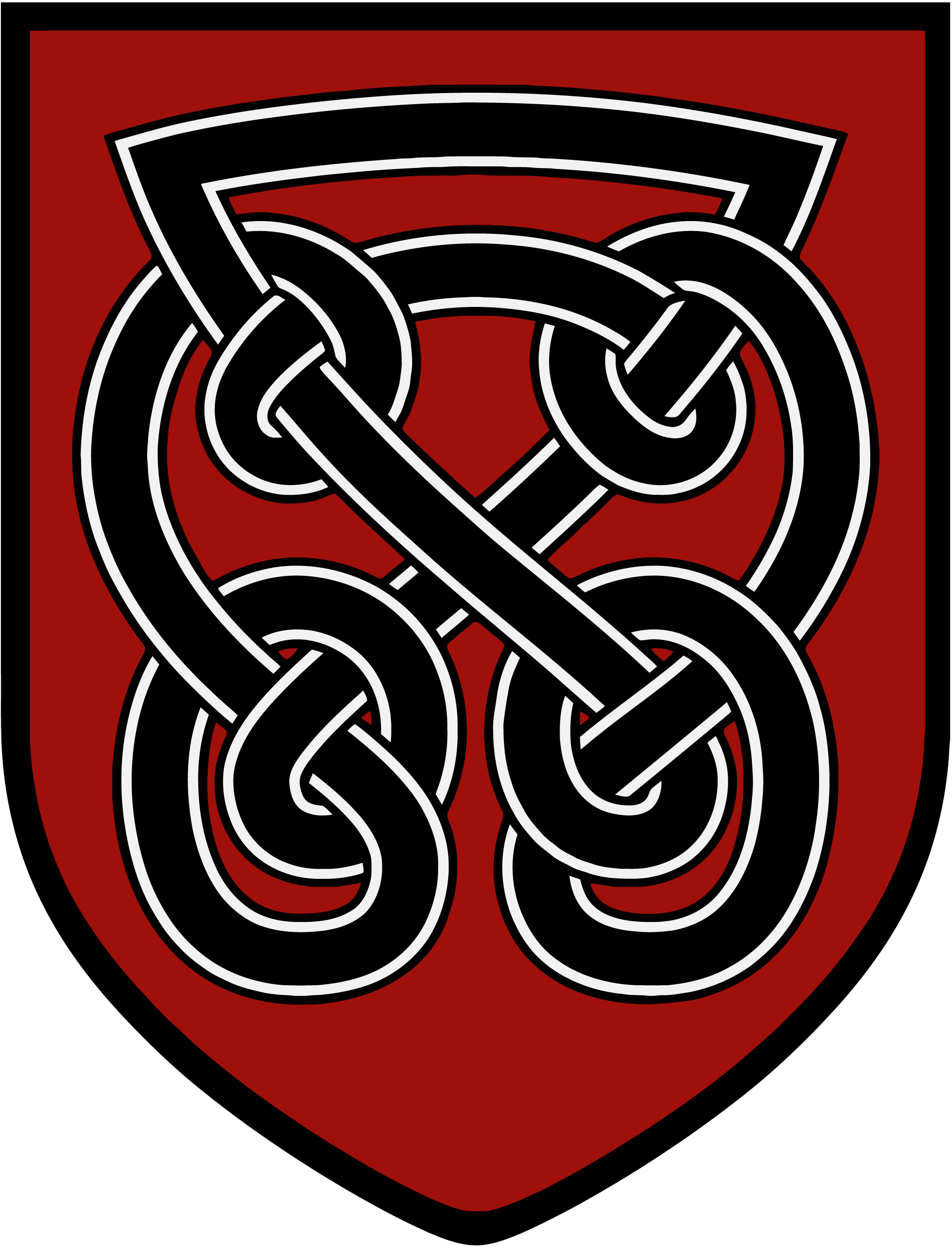
Curriculum
Key Stage 3
The science curriculum at KS3 covers all areas of biology, chemistry and physics, moving on from one subject to the next approximately every term. This structure is similar to the way that students complete their GCSE course so they are well prepared for KS4. The recent change in the curriculum at KS3 sees an increase in the development of specific skills such as analysis and evaluation, scientific communication and investigative skills. Assessment involves a formal test, approximately every half term, which includes extended writing, numeracy and working scientifically.
The Year 7 content has an emphasis on cell biology, moving onto the structure and function of body systems and a specific focus on reproduction in mammals and plants, and the foundations of chemistry (particles and their behaviour; elements, atoms and compounds; chemical reactions; and acids and alkalis). Forces and space are the two physics topics that are also covered.
In Year 8 health and lifestyle, ecosystem processes and adaptation and inheritance are the biology topics. The periodic table, separating mixtures and the Earth are studied in chemistry while physics focuses on waves, with both sound and light being covered.
This leaves one chemistry topic (metals and acids) and three physics topics (electricity and magnetism; energy; and motion and pressure) to be completed in the first term of Year 9, at which point the students will have completed the KS3 course. After Christmas in Year 9 students start their KS4 science studies.
Key Stage 4
Students follow one of two learning routes:
- The majority of students will complete the AQA Combined Science (Trilogy) course which is a double award and counts as two GCSEs.
- Our most able students will continue to take the three sciences (biology, chemistry and physics) as separate GCSE subjects.
All the courses are linear with all the exams being completed at the end of Year 11
In the Combined Science biology course the Year 9 programme of study covers cells and organisation, moving on to disease and bioenergetics in Year 10. In the final year biological responses, genetics and reproduction and ecology are the main topics. Students taking the separate biology GCSE cover some areas in more depth and also extra topics such as homeostasis and sustainable food production.
The Year 9 chemistry programme focuses on atomic structure, linked to the periodic table, and the structure and bonding of ionic and covalent compounds. Year 10 includes chemical calculations, chemical reactions and energy changes and Year 11 sees the introduction of rates and equilibrium, chemical analysis and environmental chemistry. The separate GCSE chemistry programme also has a significant organic chemistry content, along with an extra section on using resources.
Physics starts with energy and energy resources in Year 9 and then electricity, thermal physics and radioactivity in Year 10. The final year programme focuses on forces and motion and the properties and uses of waves. Those studying physics as a separate GCSE will also cover pressure, space and a much more in-depth study of light waves and electromagnetism.
We offer OCR biology, chemistry and physics courses at A Level. These courses are academically challenging and prepare students well for studying science, engineering and related courses, such as medicine, at university. The courses all have a significant practical element, with students being awarded a practical endorsement alongside their A-level qualification.
Extra Curricular Activities
We aim to stimulate as many minds as possible with a variety of activities that range from lectures and demonstrations to clubs, quizzes and competitions. In recent years groups of KS3 students have competed in the MBDA Robot Rumble and Glider competitions and students in post 16 have achieved bronze, silver and gold awards in the Chemistry Olympiads. We also organise a variety of external trips, including Year 8 trips to the Natural History Museium in Tring, a Year 10 trip to Whipsnade Zoo and trips to inspire students to the Royal Society’s Summer Festival.
Links
Post 16:
AS & A Level link to Biology Specification
AS & A Level link to Chemistry Specification
AS & A Level link to Physics Specification
GCSE:
Biology Specification & other documents
Chemistry Specification & other documents
Physics Specifications & other documents
Combined Science Specification & other documents
Other useful links:
Sparx Science Login for homework
Kerboodle Activate Login for KS3
Kerboodle Login for GCSE & A Level
AQA GCSE Past Papers & Mark Schemes
OCR A Level Past Papers & Mark Schemes
BBC Bitesize for AQA GCSE Biology
BBC Bitesize for AQA GCSE Chemistry
BBC Bitesize for AQA GCSE Physics
BBC Bitesize for AQA GCSE Combined Science Trilogy
Staff
Our lively and expanding department is made up of specialist teaching staff, technicians and dedicated learning assistants.
- Mrs Cara Matthews – Head of Department
- Mr Richard Parmar – 2nd in Science
- Dr Emma Dunham – 3rd in Science
- Mr Lawrence Foster – Teacher of Science; Deputy Headteacher (Behaviour & Attendance)
- Mrs Sandra Hibbert – Teacher of Science
- Mrs Faye Nearney – Teacher of Science; Deputy Headteacher (Curriculum & Safeguarding)
- Dr Alan Reid – Lead Practitioner in Teaching & Learning
- Mr Ben Stokes – Teacher of Science
- Mr Simon Poliakoff – Teacher of Science; Lead Practitioner in Teaching & Learning
- Mr Alf Lesurf – Teacher of Science; Lead Practitioner High Attainers
- Miss Olivia Bradley – Teacher of Science; Assistant Head of Year
- Mr Daniel Schütze – Teacher of Science
- Ms Natalie Graham – Science Technician
- Mr Blake Matthews – Science Technician
